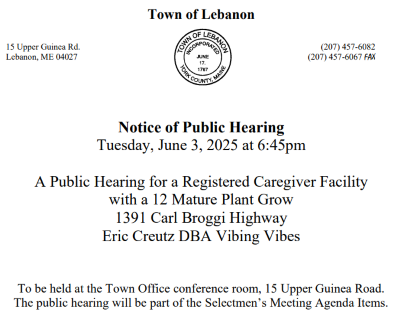Editor's note: This is the fifth and final part of a series that highlights the case of Raven 23 and Rochester native Evan Liberty, who is wrongly serving a 30-year sentence in a federal prison in the infamous Nisur Square incident in Iraq of 2007. Today: The appeals process officially began last month and points out at least five flaws in how the trial was conducted and how the case was prosecuted.
To understand the vindictive and prejudiced prosecution the government employed in the trial of Rochester native Evan Liberty you need only read from the trial transcript.
In a 118-page appeal brief drafted by Liberty's defense team, a testy exchange between a defense attorney and the judge over the government's jurisdiction in such a case sheds light on the court's heavy-handedness.
Lack of jurisdiction, illegal venue, perjured testimony by the prosecution's star witness and use of an inapplicable gun law are four of the key factors that Raven 23 supporters hope will lead to a successful appeal or acquittal of the four men currently sentenced to federal prison for at least 30 years.
Liberty, 33, Nicholas Abram Slatten, 31, of Sparta, Tenn.; Paul Alvin Slough, 36, of Keller, Texas; and Dustin Laurent Heard, 33, of Maryville, Tenn., all worked as Blackwater security guards protecting U.S. diplomats. They were found guilty in 2014 of opening unprovoked fire in Nisur Square, Baghdad, on Sept. 16, 2007, killing 14 Iraqi civilians and wounding many others.
Attorney William Coffield, the lead defense lawyer for Liberty, said on Wednesday the case should never have been brought, should never have been tried and should never have gone to deliberations, which ended up taking nearly seven weeks.
"The judge shouldn't have let the jury have the case," Coffield said. "He should've dismissed most of the case on Rule 29," which a court is charged with doing if there's not enough evidence to convict.
Coffield said the guilty outcome came in part due to a "politically charged case that goes in front of the jury, where they don't follow the evidence and don't follow the instructions."
But if some of the dialogue between Judge Royce C. Lamberth and a defense attorney during the case is any indication, Lamberth appears to have a penchant to construe arguments on the fly and in furtherance of the government's case.
A look at the major arguments for appeal
Jurisdiction
The Military Extraterritorial Jurisdiction Act of 2000 allows for prosecution of criminal offenses committed by persons who are servicemen or employed by or accompany the Armed Forces outside the United States.
Blackwater security guards protected diplomats in Iraq in 2007 and worked for the Department of State, not the Department of Defense.
In fact, a former Deputy Secretary of Defense, Gordon England, agreed in 2007 that "these private security contractors were not engaged in employment supporting the DoD mission overseas."
Following below is a portion of the court transcript that indicates what appears to be an arbitrary rebuttal of England's assertion. The back and forth begins after a defense attorney sought to have the jury apprised of the lack of jurisdiction to even bring forth charges since they worked for DoS.
 BEGIN TRANSCRIPT
BEGIN TRANSCRIPT
THE COURT: Yeah, forget that one.
[COUNSEL]: And it [goes] to whether--
THE COURT: No, we're not doing that.
[COUNSEL]: Your Honor, there's been a lot of argument in this case about [whether] guarding diplomats is military work or military related work or diplomatic work. And there's a statute that specifically governs this and specifically gives that responsibility to the--
THE COURT: I rejected that argument. I reject that instruction.
[COUNSEL]: May I ask Your Honor to consider as a substitute for that argument simply instructing the jury on the language of the statute?
THE COURT: No. It's very misleading. It's not, in fact, what they're doing over there. I don't believe it.
[COUNSEL]: Your Honor, the contracts and the task order in this case refer to the statutory mission of the State Department to protect its diplomats, and what we're asking is--
THE COURT: I understand. You think the Department of Defense doesn't have any obligation? You think it doesn't relate to--I'm giving them the [government's] instruction.
[COUNSEL]: Under 22 U.S.C. § 4802, that's--
THE COURT: If I believe this, I would dismiss the case right now for lack of jurisdiction. I don't believe this. This isn't what--you can't read this and the other statute together, so forget it. What's the next objection?
END TRANSCRIPT
As a result the jury never heard the instructions that might have derailed the case abruptly.
Venue
In trials for criminal offenses that occur overseas the venue, or location where the trial is heard, by law takes place where the defendants are arrested, which was Utah in this case.
However, defense lawyers say government attorneys orchestrated the "arrest" of one of their key witnesses who they'd given a sweetheart deal to in Washington. Jeremy Ridgeway, a Raven 23 team member who testified against his former colleagues, however, was never really arrested. He turned himself in in Washington, but was never detained and traveled between his home in California and court throughout the trial.
 |
|
Within 30 minutes of the Nisur Square incident, an Army Captain was on scene to informally survey and report to his superiors. He took several photographs, including a photograph of spent AK-47 shell casings behind a bus stop that corresponded to one of the locations from which members of Raven 23 had reported receiving incoming fire. The Justice Department failed to turn the photo over to the defense till the trial was half over. (Courtesy image) |
Incidentally, court testimony reveals that witnesses described Ridgeway as the one who indiscriminately fired his weapon on Sept. 16, spraying a wide swath of bullets around Nisur Square.
Ridgeway ended up being sentenced to just one year in jail as part of the deal to turn state's witness.
Defense lawyers, noting the political nature of the case, wanted the trial in Utah, which they insist was the legal trial venue.
The decision to allow a Washington trial "allowed the government to manufacture venue and choose a more favorable jury pool for this controversial prosecution," according to the appeal brief.
Defense attorneys also contend Ridgeway wasn't a "joint offender" because the term implies "collaborative criminal conduct by actors who share criminal intent." Since there was no previous intent to open fire on Sept. 16 they were not "joint offenders."
GUN SENTENCE
While Slatten was convicted of murder and sentenced to life for killing the driver of the Kia, Liberty, Slough and Heard were sentenced to time served for their manslaughter convictions but given 30-year minimum sentences for using automatic weapons in commission of a crime, a law that was enacted during the 1980s to punish drug dealers who use machine guns to protect and enhance their drug empires in the United States.
Blackwater security guards, however, were supplied those guns by the State Department so they could effectively guard diplomats. The defense argued first that a 30-year across-the-board sentence for all three defendants whose degrees of guilt, even if found guilty, was grossly variable, inappropriate. But more importantly, they argued that "a 30-year sentence for defensive use of government issued weapons in a war zone is grossly disproportionate."
The appeal asks how you can equate a drug dealer or bank robber who uses a gun to commit a crime to defendants who carry high-powered weapons to respond to mortal threats in a war zone.
Lamberth, incidentally, has warned that if they seek reversal on the gun sentence he'll increase their terms for manslaughter.
PERJURED WITNESS
What may be the strongest case for acquittal or a new trial at the very least, is the fact that the state's star witness, an Iraqi police officer, perjured himself at trial, giving one account of what happened on the stand, and another in a sentencing statement.
"The government's case was built on the foundation of perjured testimony from an Iraqi police officer who testified vividly that he approached the white Kia moments after the first shots were fired and found its driver dead," the appeals brief states. "Based chiefly on that eyewitness testimony, the government argued the entire incident began when Slatten, unprovoked, shot and killed the car's driver. Only after trial, in a sentencing statement, did the officer tell the court that he never actually approached the car, but instead cowered in his traffic kiosk, where he saw and heard the Kia's driver arguing passionately with his mother about getting her to safety" - a conversation which could have taken place only after shooting had started.
Obviously if he heard the two screaming during the firefight, the government's argument that Slatten, unprovoked, killed the driver falls flat.
But even after this fact came to light, no thanks to the prosecution, the "government scrambled quickly to get the genie back into the bottle, and reported that the officer claimed he misunderstood the nature of his post-trial statement and was merely spinning an imaginative "expression" of events," the appeals brief states.
But Coffield said one of the most disturbing aspects of this revelation was that the prosecution didn't make such exculpatory evidence readily known. Instead it was buried among 83 pages of sentencing statements and was found by a member of the defense team or it likely would never have been brought up.
As it was, Coffield said instead of declaring a mistrial or moving for acquittal the prosecution telephoned Monem in Iraq and interviewed him alone.
The FBI's summary of the call stated "that Monem repeated certain aspects of his trial testimony, including his claimed observations of the driver's injuries, states the driver "died immediately after being shot," and that Monem "did not, at any time, hear the driver talking or see him moving after he was shot," the appeals brief states.
Regarding the differences, the FBI summary of the call states that "he (Monem) understood the victim impact statement to be an 'expression' and not an investigative or factual statement. He explained that when he was writing his victim impact statement he was imagining what it would be like to be the driver of the vehicle," the brief states. The court denied defendants any redress regarding Monem's perjured testimony.
"Anything that raised issues on the veracity of his testimony should've been brought to court and the defense's attention," Coffield said. "It was very disturbing to us that this would not be brought to our attention, and we would have to find it by our own research but also to run to this witness in an ex parte way further clouds the issue with an appearance of impropriety."
Based on this perjured testimony, alone, the defense called for a new trial, but was denied.
LACK OF PROOF OF CULPABILITY FOR EVAN LIBERTY
A final bullet point for the appeals brief filed by Coffield argues that as to Liberty's culpability, himself, the government has no case.
 |
| Evan Liberty in Iraq in April 2005. (Courtesy photo) |
"No evidence was introduced to show beyond a reasonable doubt that Liberty: fired his weapon in the direction of any of the alleged victims, caused the death of any of the alleged victims, or intended to commit manslaughter against any of the alleged victims," Coffield and his team wrote.
According to the brief, Liberty, who was in the command vehicle for Raven 23, opened the door for his superior officer, who twice leaned over him firing first at the Kia then at a man to the south. The second time he opened the door testimony reveals Liberty fired his weapon to the southeast, though no evidence ever indicated any victims in the area where Liberty shot.
Perhaps the most sadly ironic part of the narrative revealed by the appeals briefs is that Ridgeway, who likely caused more death and destruction than any other guard, struck the deal that put his buddies in prison.
Coffield's team, meanwhile, is not the only entity to file a brief calling for acquittal, or at least a retrial.
The National Association of Criminal Defense Lawyers has also filed what's called an Amicus Brief that mirrors many of Coffield's team's findings.
A reading of the plaintiff's reply to the appeals briefs is expected in May and will likely be heard this fall.
The U.S. attorneys representing the prosecution said they had no comment for this story as the appeals portion of the case is still active.















